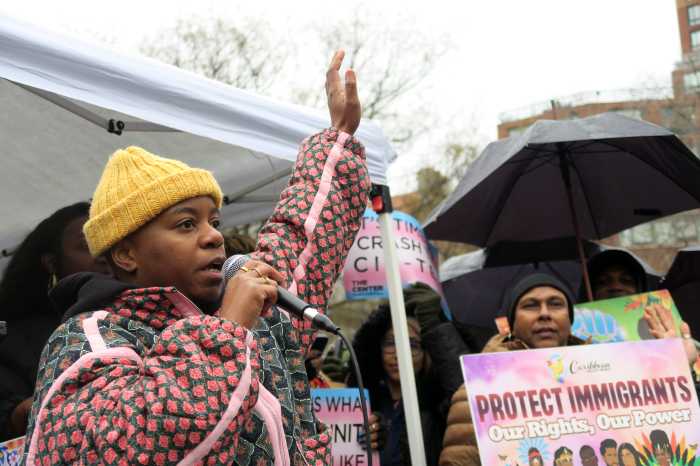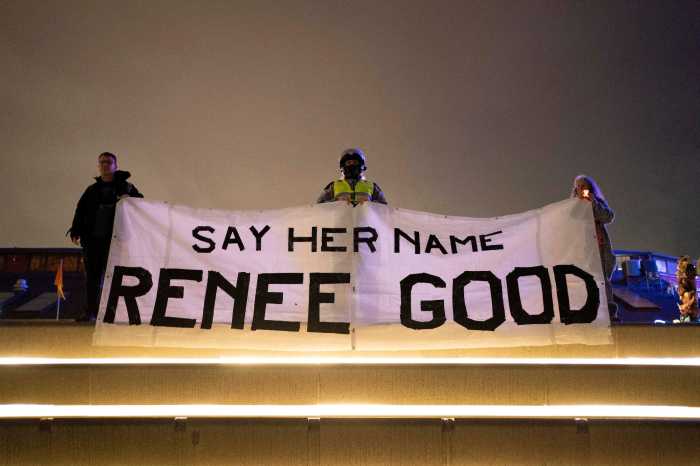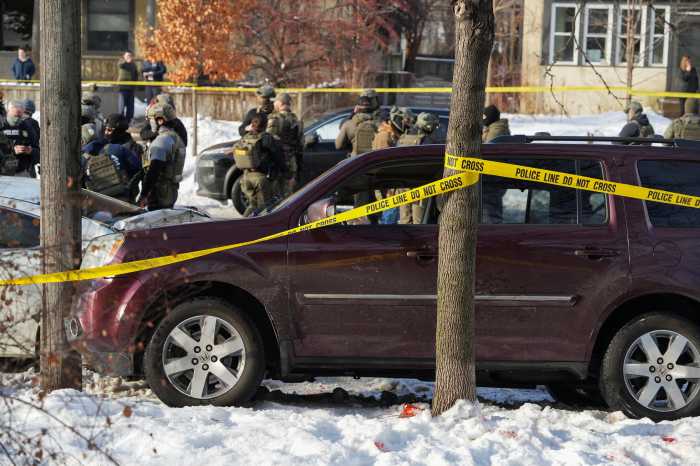Just weeks after Melissa Etheridge’s public discussion of her breast cancer diagnosis helped put “a lesbian face” on the illness, the November election’s same-sex marriage backlash provided a disappointing setback to the cause of enhancing lesbian access to health care in this country.
The language in nine of the 13 state amendments denying marriage to same-sex couples passed in 2004 could be interpreted to go beyond marriage to implicate civil unions, domestic partnerships and other legal arrangements between unmarried couples, according to Carrie Evans, state legislative counsel for the Human Rights Campaign in Washington. The nine states are Arkansas, Georgia, Kentucky, Louisiana, Michigan, North Dakota, Oklahoma, Ohio and Utah.
Also in 2004, Virginia passed legislation that goes further than these amendments, potentially affecting private contracts between individuals of the same sex—partnership agreements, co-parenting agreements and powers of attorney, among others.
Even before any of these legislative and referendum setbacks, lesbians were less likely to go to the doctor and thus more likely to be diagnosed with late-stage cancer and other serious diseases. Those who do seek medical care often pay a price.
Take Micki and Peggy, a lesbian couple in their 40s who have been together for 13 years and live in a small community in Virginia. Micki has been undergoing breast cancer treatment for some time, but the hospital staff there refuses to treat Peggy as her spouse, even though the couple named each other on their health proxies and powers of attorney.
“There have been several of Micki’s surgeries when they have not come out to tell me what’s going on,” Peggy told me. “So I sit for hours thinking she is still under when, in fact, she has been in recovery for hours or I have to find out where they’ve put her and wait outside the door.”
Peggy, who herself is a nurse, added, “I have had to do all of Micki’s care in the hospital sometimes because the nurse working that shift didn’t want to touch her, simply because she’s a lesbian.”
Thousands of lesbians each year share Peggy and Micki’s predicament. Many have to deal with medical professionals’ insensitivity about their sexual orientation when they are at their most vulnerable or work around the problem as they deal with the stresses of being in the closet. At first, Peggy said, she tried passing herself off as Micki’s sister, but couldn’t keep up the charade.
Compounding the problem is the fact that statistically, lesbians are impacted more severely by women’s lower earning power—76 percent of what men earn—than their heterosexual counterparts. There is also a dearth of data on how many women actually identify as lesbian, let alone what their health status and health risks are.
On the bright side, The Mautner Project, the U.S.’s only national lesbian health organization, located in Washington, D.C., has teamed up with the Center for Disease Control and Prevention on that agency’s National Breast and Cervical Cancer Early Detection Program, which is specifically targeted to underserved women in all 50 states.
And there is a smattering of feminist/lesbian health projects throughout the U.S., including the Long Island Lesbian Cancer Initiative, which have developed services such as support groups and help with household chores while women are in treatment, and which conduct sensitivity training for health workers. These efforts provide a safe space to discuss post-treatment intimacy problems and to share information about lesbian-sensitive doctors. These projects need to be better funded so they can reach every lesbian in the U.S.
Activism around lesbian health has come from some of those women directly affected by cancer. Peggy and Micki, for instance, are starting a lesbian cancer support group in their area. Before being diagnosed with breast cancer in 2002, I was not very political, but I have since co-founded the New York City Lesbian Cancer Support Consortium after I couldn’t find a support group in the city geared to lesbians.
It it clear to me that only by being out can lesbians hope to get the full range of services they need and deserve.
At the time she went public with her health status, Etheridge requested that in lieu of gifts, her fans send a donation to the Dr. Susan Love Research Foundation, an effort begun by a committed lesbian breast surgeon. Love’s goal is to end breast cancer in the next ten years.
Wouldn’t it be nice if in that time frame the barriers to health care faced by lesbians could be removed? Our lives depend on it.
For more information about the New York City Lesbian Cancer Support Consortium, visit bway.net/~mich/consortium/index.html. For more information about the Long Island Lesbian Cancer Initiative, visit lilci.org. For more information about the Dr. Susan Love Research Foundation, visit susanlovemdfoundation.org.
Michele Forsten won a 2004 Sarah Pettit Memorial Award for Excellence in LGBT Media from the National Lesbian & Gay Journalists Association.
gaycitynews.com



































